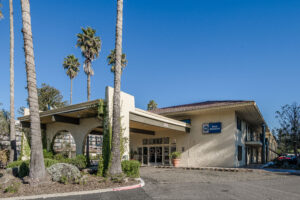California Hotel Sales Surge, Riding Economic Growth
California Hotel Sales Surge, Riding Economic Growth
CoStar
08/27/19
California Hotel Sales Surge, Riding Economic Growth
By Lou Hirsh
https://product.costar.com/home/news/shared/1461623265
California hotel property sales set a new price-per-room record as the number of sales increased over last year, though the momentum could slow amid escalating labor costs and international trade disputes.
The number of hotel property sales in the state rose 8% in the first half of 2019 from the same time last year as 145 properties changed hands, according to hotel brokerage and research firm Atlas Hospitality Group, which tracks California hotel sales and development. Those transactions totaled $2.05 billion, a total dollar volume that was down almost 12% from a year earlier.
Still, the increased sales activity pushed the price paid per room to a record median price of $130,025, up 12.7% from the first six months of 2018. That’s also a rise of 146% over the past 10 years.
“As long as the economy remains strong and interest rates remain low, prices should continue to go up,” said Alan Reay, president of Atlas Hospitality Group.
The acceleration in sales this year follows a significant drop that occurred in the first half of 2018. Atlas Hospitality Group showed California posting a 35% decline in the number of hotels changing hands in the first six months of last year over the same time the previous year. But the decline was slightly deceiving, 2017 was a record year for hotel property sales in California.
Reay told CoStar News that a strong California tourism economy, including domestic and international travelers, is driving business meetings and convention business for the state’s hotels.
Among all states California ranks as the top travel destination, bringing in more than 217 million in-person trips last year, according to the state’s tourism industry group Visit California. It projects 223 million visits this year.
San Diego County led the state for highest total dollar sales volume in the first half of the year, at just under $329 million, according to Atlas. That includes Hong Kong-based GAW Capital Partners’ purchase of the 417-room Hyatt Regency La Jolla hotel and adjacent retail space in San Diego last month for $147 million, California’s priciest hotel transaction this year, according to CoStar.
But it may not be all sunshine for California hotels going forward amid concerns about the global economy slowing.
“If demand slows, the supply of new hotel rooms coming online could start to impact price appreciation,” Reay added.
High Costs
An earlier report by Atlas showed that California had a record-breaking year in 2018 for hotel development and at the midpoint of 2019 was on pace to eclipse that, with 234 hotels totaling 32,424 rooms under construction. California also has another 1,143 hotels in planning stages, totaling 155,782 rooms.
How those upcoming properties fare, and when they actually get built, could hinge on larger factors in the U.S. tourism economy. A recent U.S. travel and hospitality outlook report from consulting firm Deloitte noted that this year marks a decade since the U.S. travel industry, among the hardest hit during the Great Recession, began its nationwide recovery.
Hotels in particular have benefited more than any other sector of the travel industry, with revenue nationwide rising 6% in 2017 from 2009. That’s better than restaurants, which were up 4.4%, and airlines, which grew 4.6%, Deloitte reported.
Statewide in California hotel occupancy averaged 80.6% in June this year, a slight drop of three-tenths of a percentage point year-over-year, according to global hotel industry data provider STR. Revenue per available room, a key indicator of a hotel’s value measured by multiplying a hotel’s occupancy by its average daily room rates, climbed 3.1% to more than $143 as the average daily room rate hit almost $178 per night in June.
“We are definitely at a peak,” Bruce Baltin, managing director of brokerage CBRE’s Hotel Advisory group in Los Angeles, said of the hotel market’s climb for the past several years in a recent interview with CoStar News. “The general state of the California hotel market is at a very healthy plateau. We have had a number of years of growth in rate and occupancy so the market overall is very healthy but it’s flattened out.”
That follows part of a trend in the national hotel market, according to the most recent hotel report from CoStar Portfolio Strategy, which showed relatively flat occupancy gains weighing on the growth of RevPAR even as room rates climbed steadily at the end of last year. The report listed San Francisco, Los Angeles and San Diego as among the nation’s top 14 cities as leading markets for sales last year.
Last year, travel-related spending in California totaled almost $141 billion, up 5.4% from the previous year, according to Visit California.
Consumer spending on travel is expected to remain strong for the rest of the year, but there are warning signs it could slow, including rising costs for labor, fuel and real estate.
“At some point, all expansion cycles come to an end,” Deloitte researchers said. “With the hospitality industry reaching almost 10 years of consecutive growth, and the potential of broader economic slowdown looming, brands must prepare for the possibility of softening demand.”
The flip side to the strong economy and low unemployment rate, Reay said, is that workers are getting harder for hotels to find as costs keep rising, and hotel developers are closely watching this.
While it may not halt construction, rising labor costs could spur some developers to make certain hotel services more automated, or perhaps offer guests discounts or extra loyalty points if they are willing, for example, to forgo daily room service.
Reay said Atlas is watching the strength of the U.S. dollar, which generally makes it more expensive for international tourists to come to California, and conversely makes it more economical for U.S. residents to vacation overseas, which could impact travel to the nation’s most populous state.
“If we continue to battle with China over tariffs, this could negatively impact inbound Chinese tourism to California,” Reay said. “With interest rates declining, this should help hotel owners lower their debt service and give some buffer to a slowdown.”


